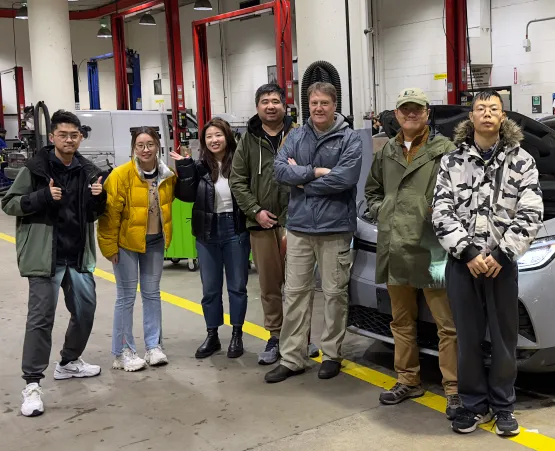A virtual reality (VR) simulation is helping train technicians to change and repair EV batteries more safely.
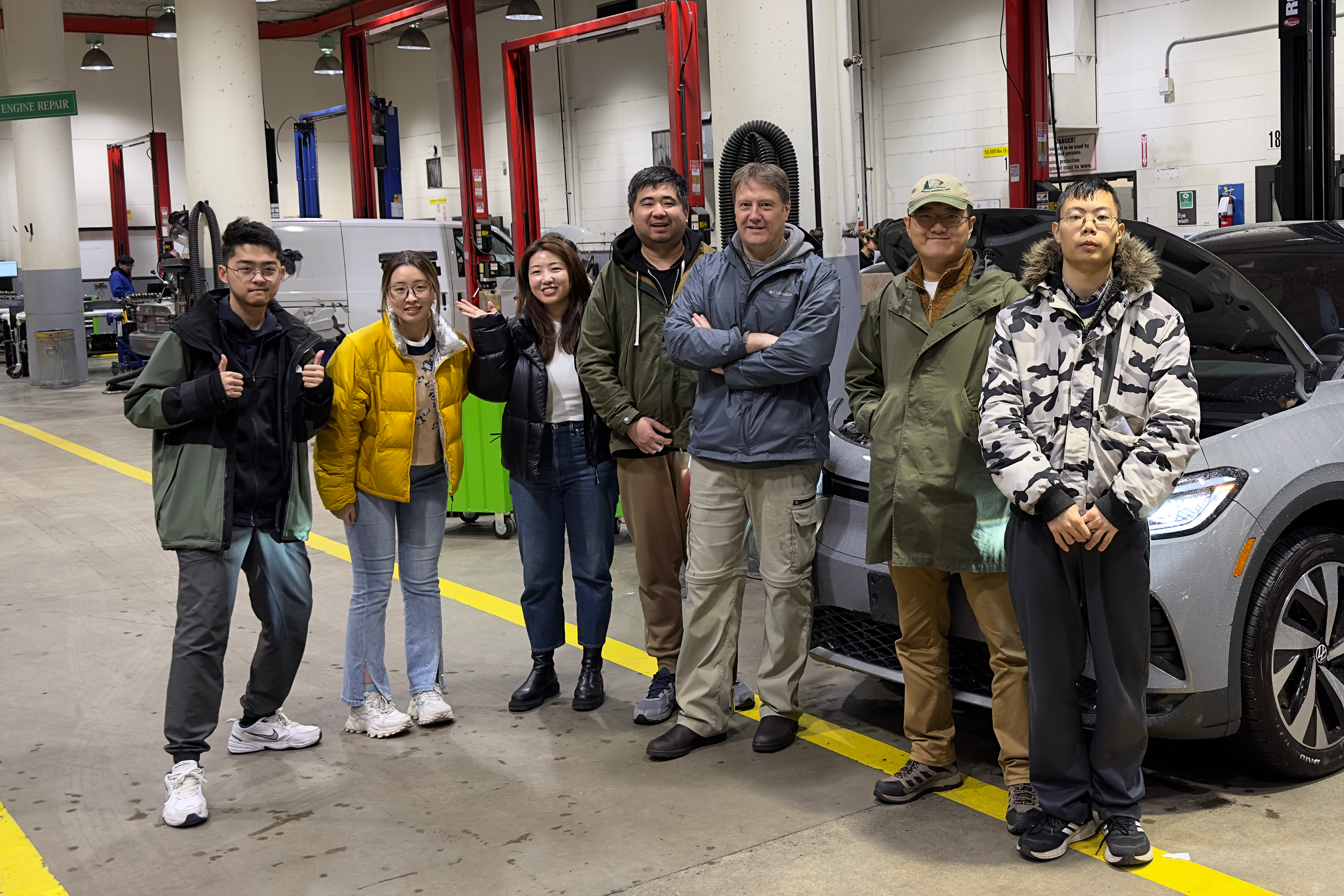
With Canada’s requirement that all new vehicles sold by 2035 must be zero emissions, EVs are only going to become increasingly ubiquitous on our roads. This means there is a growing need to train more technicians with the skills to work on EVs.
That’s why Vancouver Community College’s (VCC) Automotive Services is working with Master of Digital Media (MDM) students to use VR as a training tool to provide students a safe environment to practice changing and repairing batteries in an EV.
Due to the high voltage of EV batteries, there is a high risk of injury for students. By providing a VR simulation of the process, students can familiarize themselves with changing EV batteries in a risk-free environment, helping to mitigate and lower the risk of injury.
“Unlike regular hands-on training from instructors, this VR simulator allows students to
practice the procedures in a safe environment without supervision so they can develop the awareness of safety requirements and practice procedures independently, preparing them more rapidly for actual hands-on operations,” says Kyle Merkt, Instructor, VCC. “It doesn’t replace regular instruction—it supplements it.”
VR was chosen because the technology provides an engaging learning experience that offers step-by-step guidance and real-time feedback on student performance. It also enables students to refine their skills outside of supervised class time.
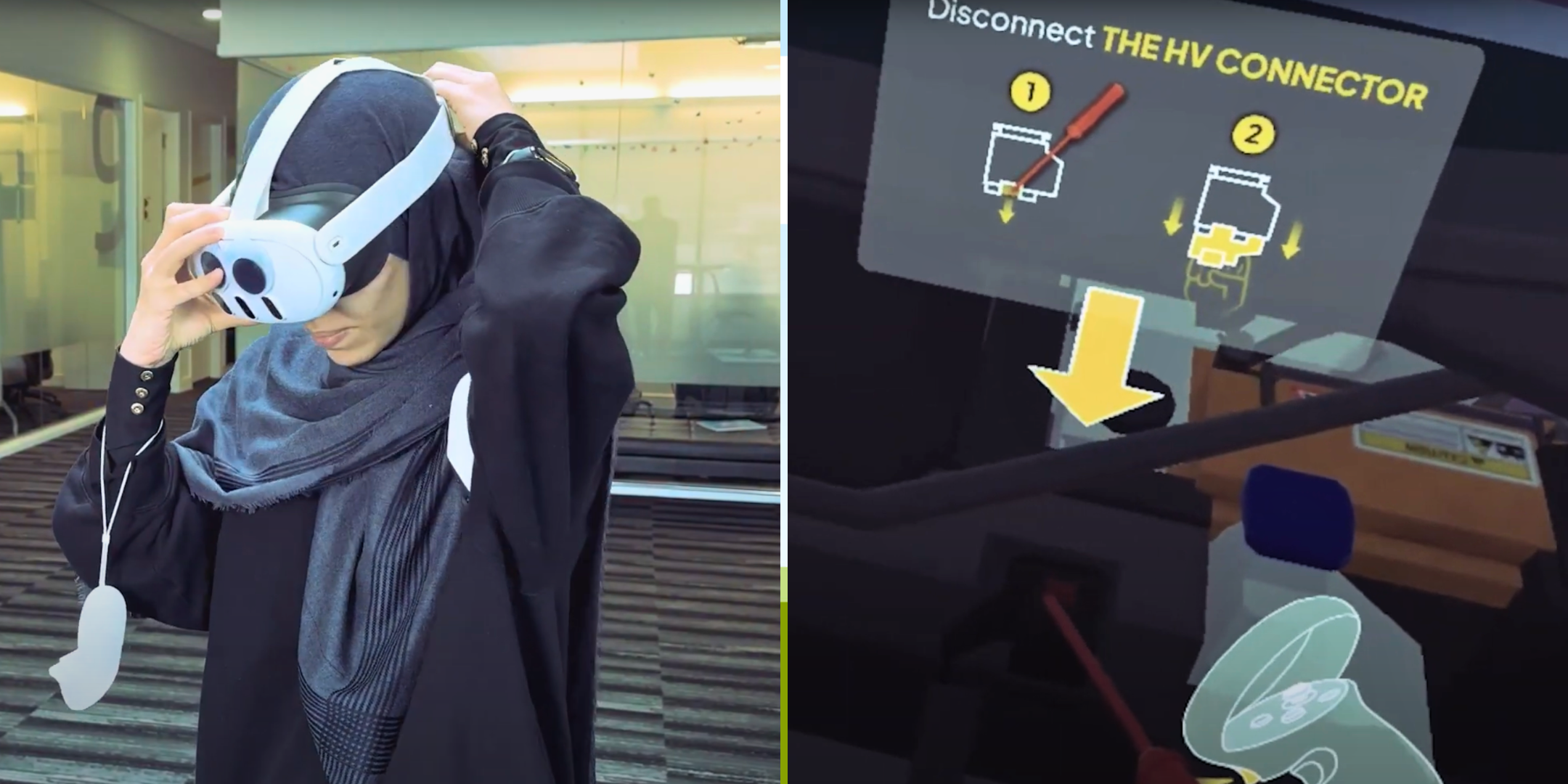
“I’ve always felt that VR simulation training is a great fit for this industry,” says Robin Pittman, MDM student and Product Manager. “We already see VR being used in the military, commercial, medical, and aeronautic spaces— fields where providing a safe training environment is vital. That’s why we proposed and built this VR tool for VCC.”
Robin—who has a technical background in science, digital media, and experience as an educational technologist and university instructor—is leveraging this project to build his leadership and teamworking skills. “I chose the MDM because I knew I needed more experience working in multidisciplinary teams as working solo for clients can only get you so far. This project enabled me to develop my skills in agile project management, giving me confidence in working in and leading a team. I’m so inspired by the work our team has done and I’ve learned so much from their expertise.”
Some of the expertise that informed the project’s success came from Kenny Zhang, a visiting student from Simon Fraser University, who brings his skills in Unity and object-oriented programming to the team. “I applied my technical skills for the development of various interfaces that expand and extend what is currently possible with Unity. What I enjoyed the most was working on multidisciplinary teams since it helped broaden my perspective and allowed me to approach problems with different angles and mindsets,” says Kenny. “I developed my skills in UI/UX, Unity and spatial design, improved my programming and object-orientated programming, and worked on my communication and collaboration skills. It’s been such a fun experience, and the work has been so interesting and engaging.”
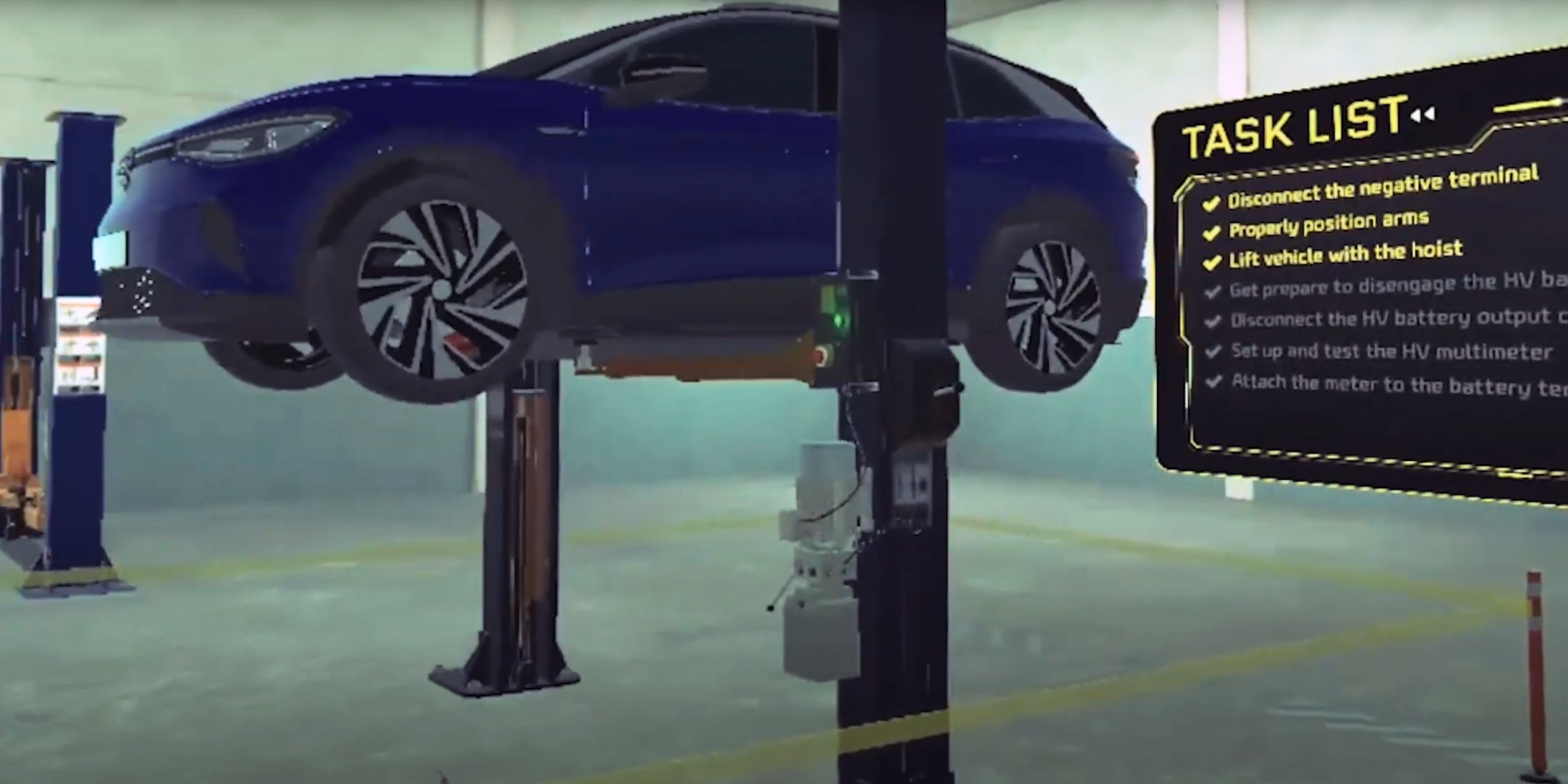
The need to adopt new technologies and approaches to keep up with an everchanging business landscape is always top of mind for organizations. That’s why VCC chose to partner with Centre for Digital Media to develop this applied solution.
“We were looking to provide better, more rapid training on EV battery repair and replacement procedures for our automotive students, which is why we chose to work with Centre for Digital Media, “says Brett Griffiths, Dean, School of Trades, Technology, and Design at VCC. “We know their students have the creativity and the skills to create innovative learning experiences that augment our instructor’s abilities to create an engaging learning environment.”
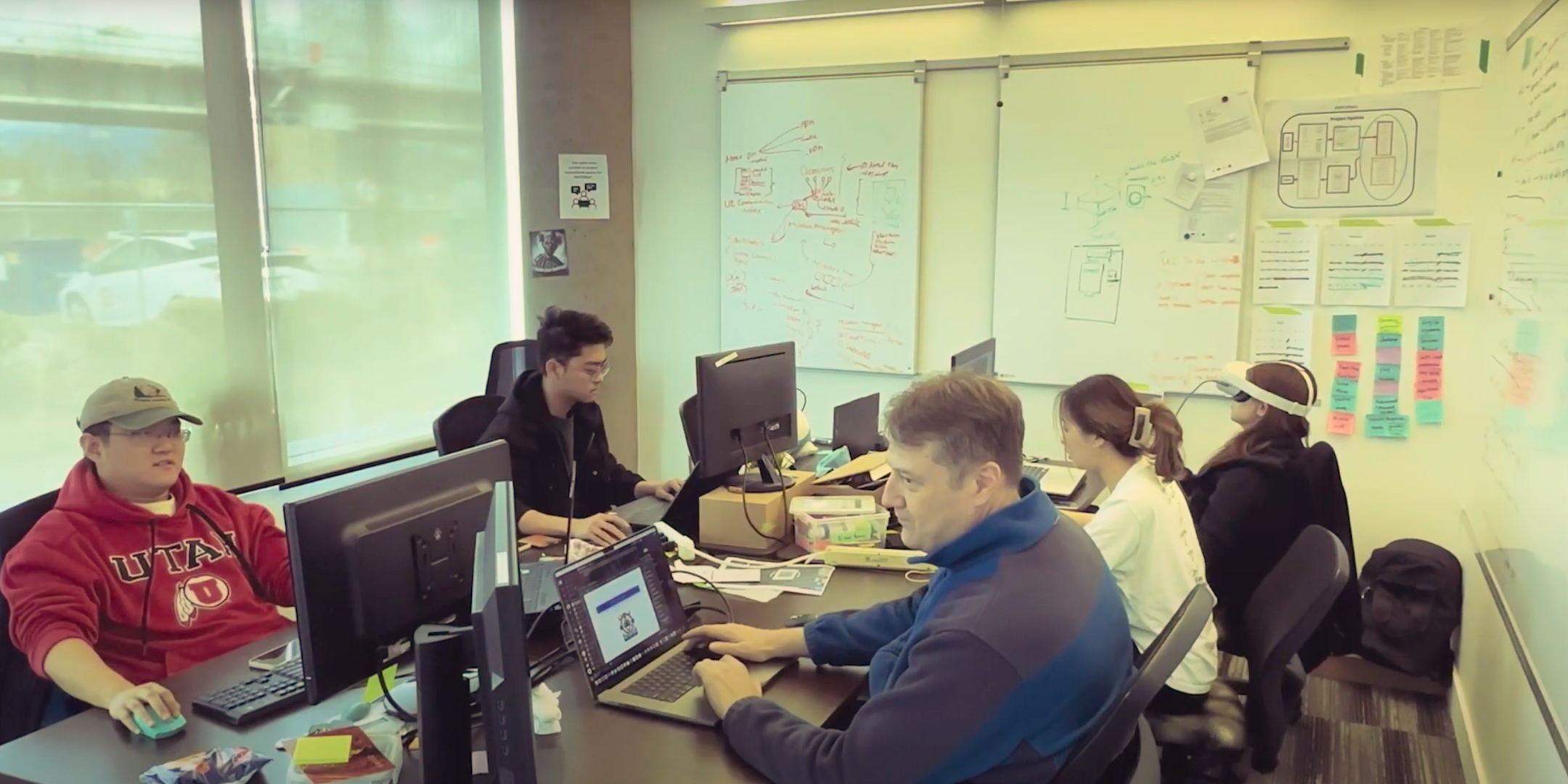
MDM students work on projects like these that intersect multiple disciplines and industries, broadening their horizons and inspiring them to integrate digital media with real-world challenges to create applied solutions. “This project, which is at the intersection of computer science, digital media, and the automotive and education industry, is a great example of how our students gain the multidisciplinary skills and confidence to innovate in the real-world,” says Bill Zhao, project supervisor and faculty at Centre for Digital Media. “They graduate with in-demand skills and have the communication and project management experience to thrive in any organization.”
Project supervisor
Work with our students
Access a multidisciplinary team of students take on an applied technology-focused project to develop prototypes or applications from concept to deliverable.
